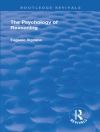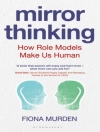Asperger’s Syndrome in Young Children is easy to read, with lots of practical ideas and advice, presented in a sympathetic manner. It would be most useful for teachers or professionals who are new to the field or parents who believe their child may be on the Asperger’s syndrome spectrum. It is a valuable source of information on strategies for helping young children with Asperger’s syndrome to realise their full potential.’
– Children Now
This landmark book focuses on how AS presents in pre-school children. An essential guide for parents coming to terms with their child’s AS diagnosis and for the professionals who work with this age group, it is unique in answering pressing questions specific to younger children. How can parents help their AS child to develop speech and language? What help is available at school and home? When, if at all, should a child be informed about AS? Including a useful summary of early childhood development stages, Leventhal-Belfer and Coe provide a diagnostic model based on assessment of the child in contrast to ‘neurotypical’ children, considering relationships at home, in school or in care. Their book shows how to develop tailored early intervention strategies and to assist parents, teachers and mental health professionals in making informed decisions to nurture the development of AS children.
İçerik tablosu
Acknowledgments. Preface. Part I: Understanding Asperger’s Syndrome in Young Children. 1. The World of the Young Child. 2. The World of the Young Child with Asperger’s Syndrome. 3. The Diagnosis. 4. The Many Faces of Young Children with Asperger’s Syndrome. 5. The Parents’ Journey. Part II: Interventions. 6. Paths of Intervention: From Traditional to Alternative. 7. Parent-Child Therapy: An Intervention for Building Relationships, Lori Bond. 8. Building Connections with Peers: Therapeutic Groups. 9. Enhancing Relationships through Speech and Language Intervention, Christine Bate. 10. Building Connections through Sensory and Motor Pathways: Occupational Therapy, Teri Wiss. 11. Building Connections with the Child’s School. 12. The Ongoing Journey. Appendix I: Diagnostic Criteria. Appendix II: Behavioral Strategies for Group Settings. Appendix III: Eligibility Criteria for Special Education in the United States. Appendix IV: Asperger’s Syndrome Web Sites. Subject Index. Author Index.
Yazar hakkında
Laurie Leventhal-Belfer is a psychologist based in Northern California who specializes in taking a developmental approach to psychopathology across the life span. She has worked with children, adolescents, and young adults with Anxiety, Depression, Stress and Coping. She has also worked with individuals with Autism Spectrum Disorders and their families for 28 years and has published 2 books with JKP previously. Laurie is an Adjunct Lecturer in the Department of Psychiatry and Behavioral Sciences in the School of Medicine, Stanford University.












